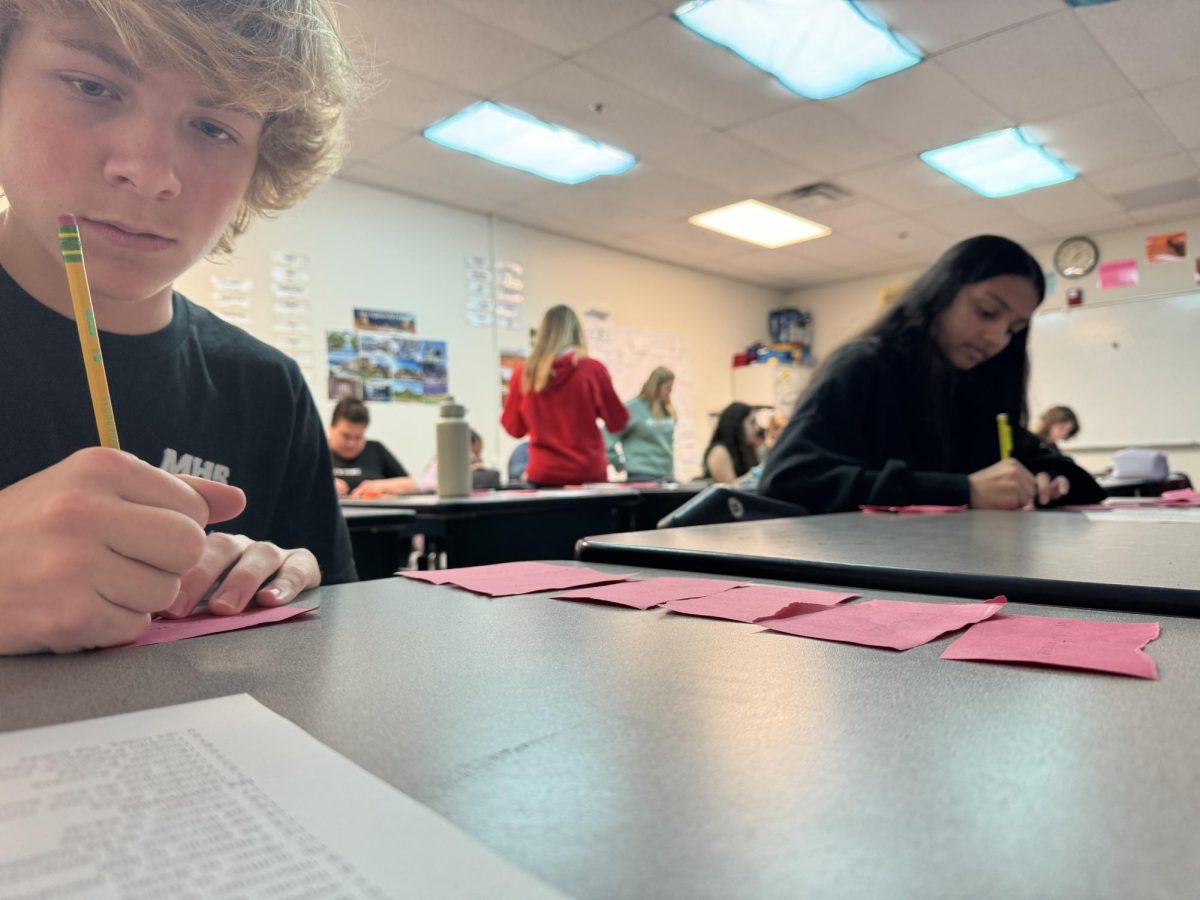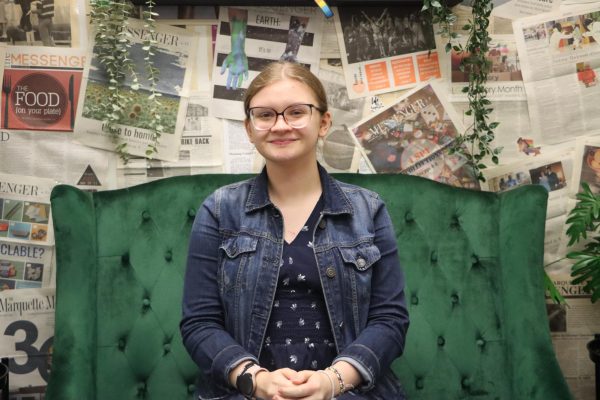Typing up a conversation with ChatGPT, Tanujha Manikandan, sophomore, improves on her differentiation of male and female nouns and verbs in French.
“In our French class, when we do our writing, usually it’s not perfect the first time,” Manikandan said. “So we go in with the AI, we check it, and it’ll tell us ways that we can improve it.”
She said her French 3 teacher Alexa Pippin currently has students utilize the platform for writing in past and future tense. Students attach their conversations with ChatGPT to the assignment so Pippin can ensure they use it responsibly.
Manikandan frequently uses AI for policy debate, where she writes affirmative arguments around a resolution made during Speech and Debate tournaments. She uses it to fill holes in her case and to know how to point out gaps in their opposition’s argument.
Manikandan said she finds the tool most useful as a tutor for classes like Honors Chemistry and Honors Algebra II, as tutoring has become expensive and she finds it good at explaining concepts.
The district has now changed its AI policy. Rockwood’s Technology Department sent out a Student Square announcement to students on Thursday, Nov. 7, about the switch from ChatGPT to Chat for Schools. The announcement claimed the new platform will have a similar user interface to ChatGPT, even going through the same platform, but will have more safety features for student data.
“I feel like being able to use it right now is a good thing, but a lot of students are misusing it, and I understand why Rockwood’s, trying to cut down AI use,” Manikandan said.
Last year, the administration had students complete an AI training course through Canvas to learn how to effectively use AI. Manikandan said she found these modules useful to learn how to ask focused questions to receive the best quality of help.
Bob Deneau, Chief Information Officer for Rockwood, said the choice to block ChatGPT for students was made before this school year began. He and the technology team had been working together and researching new AI technologies for the district, focusing on the idea of student security and finding an AI that can be used for effective, ethical reasons.
One of the features that is included in Chat for Schools is a tutor option.
“Rather than just be a traditional AI where you ask it something and then it just gives you an output, the tutors act more in a question/answer format,” Deneau said. “You as a student can ask it questions and it’s gonna give you information, but also ask questions of you back to try to really hone in what part of that topic you’re struggling in academically.”
To access Chat for Schools, students can go through their Classlink accounts and click on the “Skill Struck” icon.
Kevin Schultz, language arts teacher, sees many issues with using AI in all subjects as it takes away a student’s need to think independently, a skill post-secondary institutions expect.
“It’s taking away from your ability to be able to think critically and to establish your own voice,” Schultz said.
Schultz said his problem with students using AI is when they take credit for work they didn’t produce, since stealing from a computer screen is just as wrong as stealing from someone else’s wallet.
Schultz said last year’s AI policy was irresponsible, as the intent was short-sighted and the realistic long-term impacts were not considered.
AI can take many forms, Schultz said, whether that be spell check, Grammarly or ChatGPT. Schultz views spell check as a tool, but Grammarly and ChatGPT as bad because they are not used to fix ideas, but to generate them.
Schultz said the district’s ban on Grammarly has shown benefits because he is able to assess and provide feedback for students’ writing rather than a computer’s.
“There’s no learning that takes place there unless we assess what they wrote and can help them with their ideas,” Schultz said.





